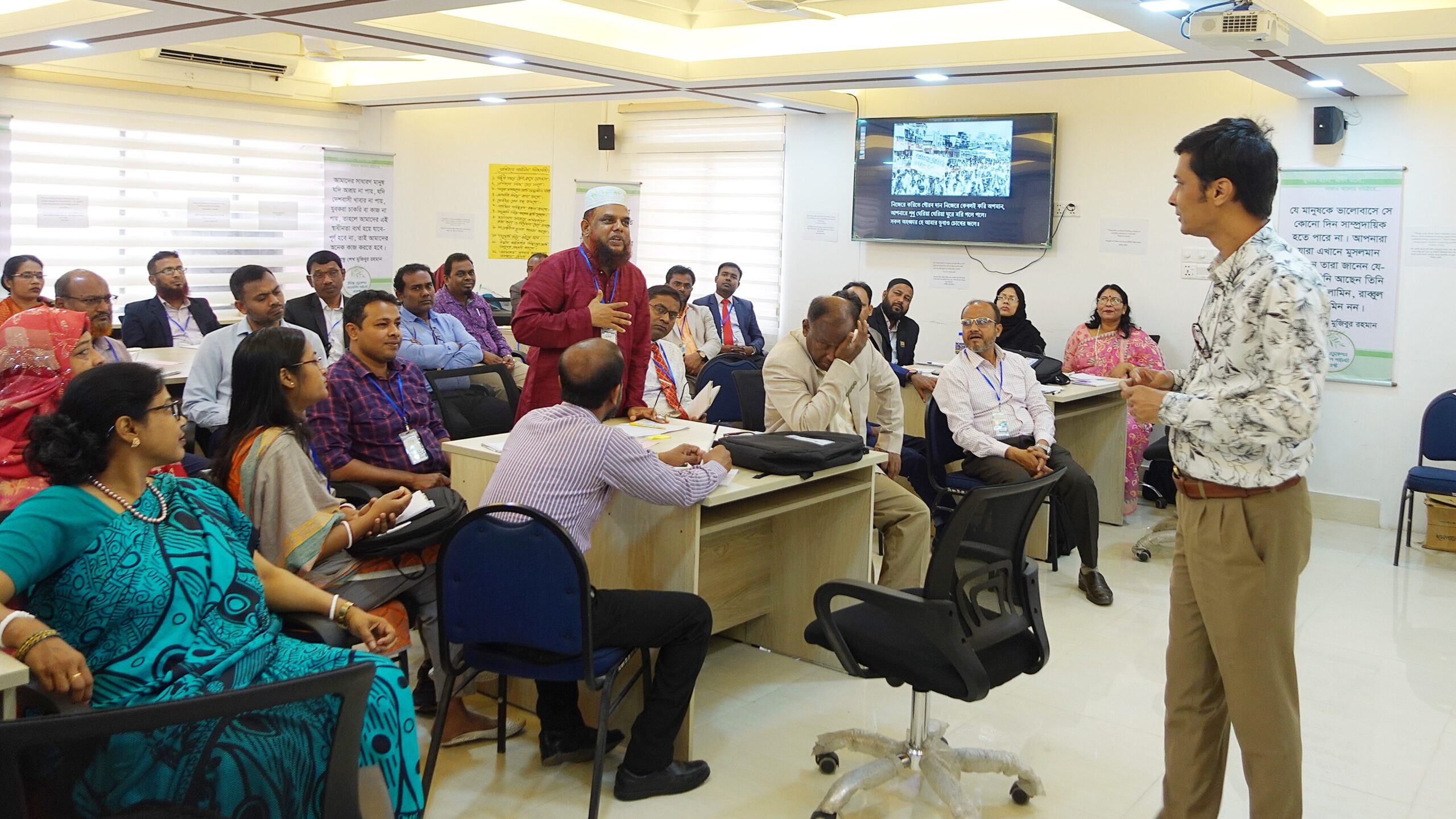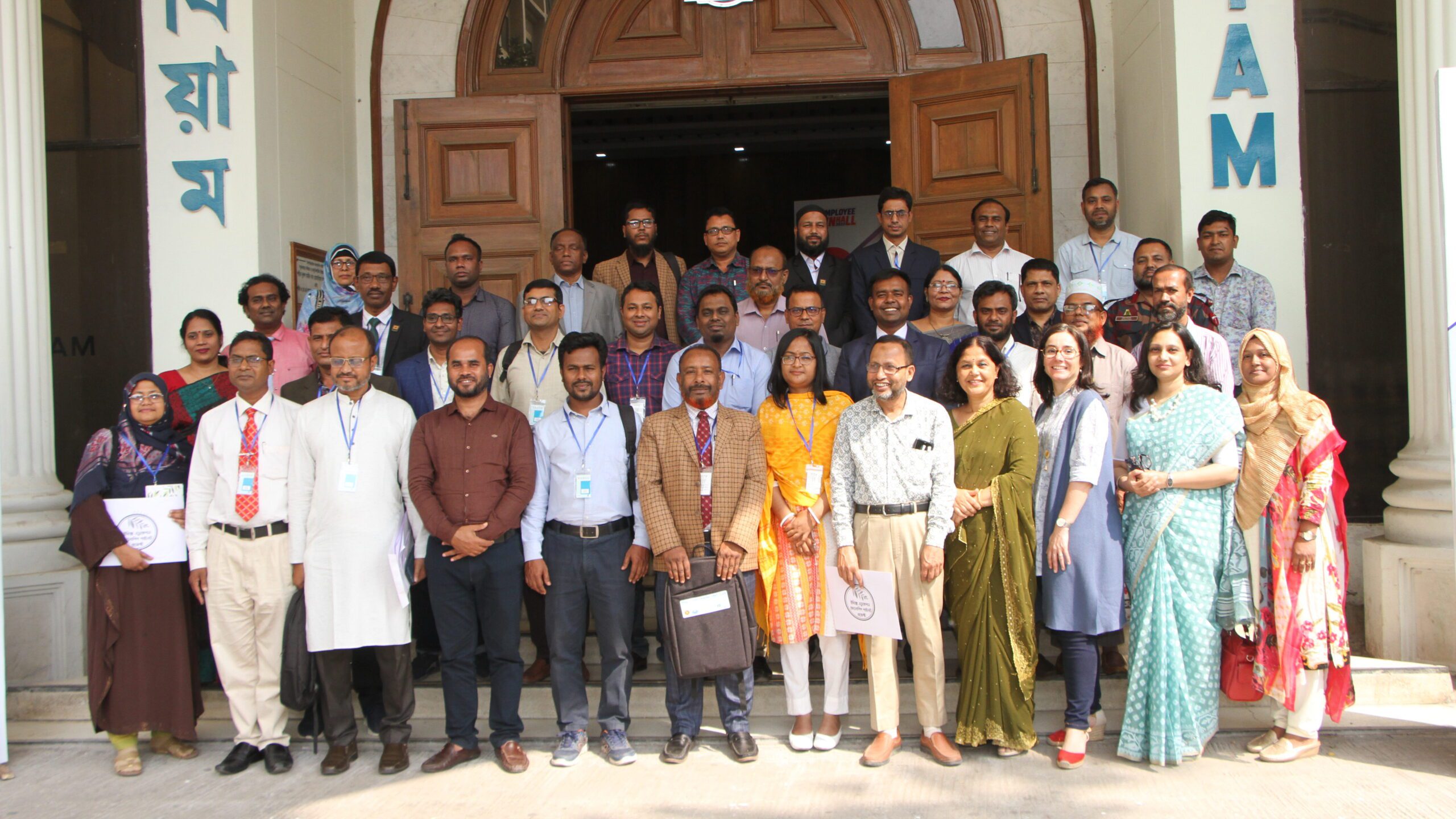
A group of 38 teachers from Bangladesh recently participated in a 5-day training workshop as part of the Ethics Education Fellowship program. The workshop aimed to equip these educators with the necessary skills to implement the program in 19 schools, benefiting approximately 1,200 children across the country.
The Ethics Education Fellowship program is a collaborative initiative between the governments of Bangladesh, Indonesia, Kenya, Mauritius, Nepal, and Seychelles. Its objective is to foster ethical values in children, promote global citizenship and build a more peaceful and inclusive society. The Directorate of Secondary and Higher Education – DSHE, under the Ministry of Education of Bangladesh, is responsible for coordinating the program in the country.
Program Launch in Bangladesh
On 22 January 2023, the Ethics Education Fellowship program was officially launched in the People’s Republic of Bangladesh. Dr. Dipu Moni, the Minister of Education of Bangladesh, participated in this occasion. In her keynote speech, Dr. Moni emphasized the crucial role of ethics education in transforming education, stating, “Ethics education is at the center of our planning. It is much more important to have ethics at the core of education than to focus solely on infrastructure, teacher training, books, and modern technologies.”
The launch ceremony also saw the participation of Mr. Mohibul Hassan Chowdhury, Deputy Minister; Mr. Suleman Khan, Secretary, Secondary and Higher Education Division, Ministry of Education; Prof. Nehal Ahmed, Director General, Directorate of Secondary and Higher Education; Ms. Susan Viz, Officer in Charge of UNESCO Bangladesh, representatives from partner organizations, as well as teachers and children.

Training Workshop for Teachers
The training workshop for teachers took place from 22 to 26 February 2023. The local fellows, a group of five educators and ministry representatives, facilitated the workshop. The fellows play a pivotal role in leading the training, delivery, and advocacy efforts within the country.
Additionally, Ms. Eleonora Mura, Senior Expert on Monitoring, Evaluation, and Learning from Arigatou International, provided support and guidance to the fellows during the workshop.
The opening ceremony of the training workshop featured keynote speeches by Dr. Suleman Khan, Secretary for Secondary and Higher Education, and Mr. Md. Belayer Hossain Talukdar, Additional Secretary. They emphasized the importance of ethics education in fostering critical thinking, and positive relationships, and implementing Global Citizenship Education. They also highlighted how the ongoing curriculum reform in Bangladesh has integrated ethics as a vital component, which is being incorporated into grades 1 and 2, as well as 6 and 7.
During the workshop, participants explored the Ethics Education Conceptual Framework, centered around three pillars: Relationships, Ethical Reflection and Dialogue, and Collective Action. Ms. Amina Begum, Senior Teacher of Bengali at Biddamoye Govt. Girls School, shared her perspective, stating, “The concept of dialogue and a safe learning environment are very meaningful aspects that will help me prepare and implement ethics education with children.”

A Transformative Impact on Teachers
After completing the workshop, the trainees expressed how the transformative pedagogy approach presented in the program empowered them to critically question their assumptions and biases. They felt encouraged to examine the root causes of social injustices and take action to create a more just and equitable society. The teachers recognized their potential as powerful advocates for change within their schools and communities, driving improvements in education at all levels.
Mr. Joydip Dey, one of the program fellows, highlighted the significant benefits brought about by the program. He pointed out, “In our previous education system, there was a heavy emphasis on rote learning, resulting in students being fed pre-structured ideas. Unfortunately, this approach sometimes contributed to increased intolerance in society. However, with the introduction of the new curriculum, we are now prioritizing independent thinking among learners, which strongly aligns with the principles of ethics education. It is indeed a crucial time to implement ethics education in Bangladesh.” Mr. Dey is an Assistant Professor at the Government Teachers Training College in Dhaka and a member of the subject committee of the National Curriculum Framework.
The implementation of the program with children in schools began in March, yielding highly positive responses from teachers, with significant engagement observed among the participating children.
We extend our sincere appreciation to the dedicated fellows: Ms. Geetanjali Barua, Mr. S.M. Shafiul Alam, Mr. Zonayed Ahmed, Mr. Joydip Dey, and Dr. Syed Mizanur Rahman. We also thank all the individuals and organizations involved in the successful execution of the Ethics Education Fellowship program in Bangladesh, and the teachers for their commitment and enthusiasm.
